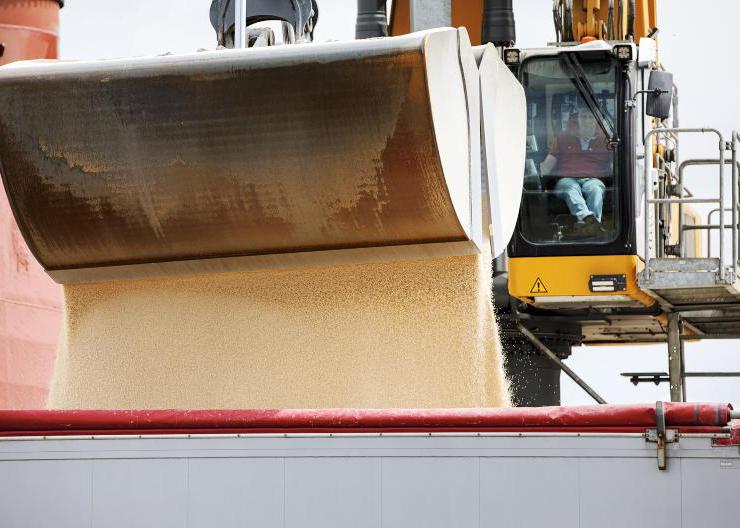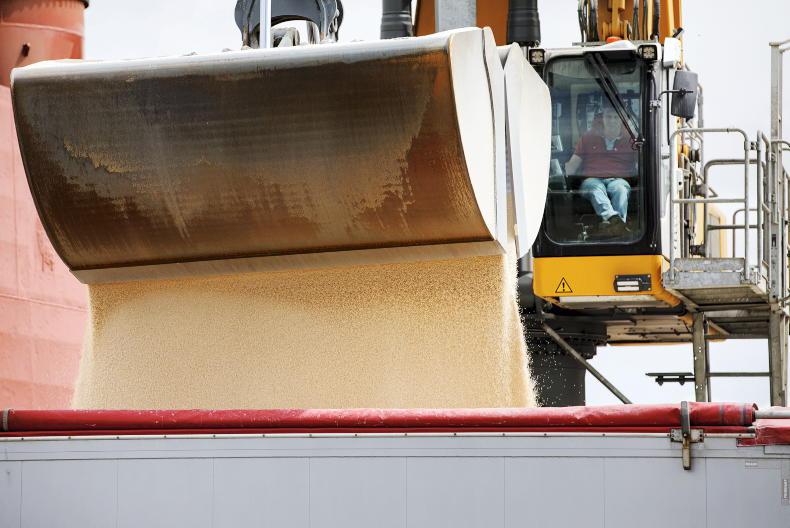There is a theme for the plenary sessions at each day of COP26. Wednesday’s was on the role of finance in carbon reductions. But the side events had a definite agricultural focus and, on Thursday, I’ve just attended an excellent discussion on dairy.
Incidentally, it was important to see [IFA president] Tim Cullinan participate in these events. Ironically, financing the carbon transition in agriculture featured more prominently in the side events.
What was refreshing about the agricultural events was their international focus and the consensus on the challenges and solutions across a diversity of systems and geographies. It was also good to see a reiteration of some of the fundamental issues that I think have gotten lost in our national discussions.
Agriculture faces a triple set of issues when it comes to climate change.
Firstly, it is one of the most negatively affected sectors. These adverse effects are primarily being experienced in the lower latitudes and several farmer testimonies have been given this week of the sometimes devastating impacts. While we haven’t experienced anything like these extreme events in Ireland, we haven’t escaped them either.
Secondly, farmers accept that some farm practices contribute to climate change and that these need to be remediated.
Thirdly, agricultural activity can be part of the solution, most obviously in the ability of the sector to remove carbon from the atmosphere, but also in the adoption of practices that can mitigate the production of carbon.
Resounding message
But one resounding message from all of the agricultural sessions so far was that farming has to focus on its primary role of food production while producing food in a sustainable manner.
It was important to hear all of the contributions stress time and time again the primacy of food security. This critical aspect of agricultural activity has not been stressed sufficiently in our own discussions.
There seems to be a view that this argument is only relevant to smallholder and subsistence agriculture. But world exporters such as Ireland play a huge role in food security that should never be forgotten.
Through our exports, we enable consumers all over the world to access nutritious food in an affordable and more carbon-friendly manner than they would be able to do otherwise.
This was a point that was particularly underlined by a platform speaker from Uruguay, who said that curtailing animal numbers would not be contemplated by his country which, very like Ireland, exports 70% of its production.
Several of the contributors said that often solutions are imposed on the sector without farmers having been consulted
There was also a refreshing emphasis on farmers needing to be part of the solution to climate change in respect of both the mitigation and removal of carbon. But, crucially, several of the contributors said that often solutions are imposed on the sector without farmers having been consulted or even listened to.
President of the World Farmers Organisation (WFO) Theo de Jäger put it colourfully when he said that “it’s very easy to talk about agriculture if you’ve never done it before”.
The contributions and discussions were dominated by focusing on solutions. Most of the solutions are very familiar to Irish farmers. But the ‘toolkit’ devised by the 'Climakers' initiative of the WFO, with support from the International Fertilizer Association, and the measures set out in the recent initiative of the world’s major dairy companies 'Pathways to Dairy Net Zero' package these solutions in a way that are designed to influence policy makers.
Buzz phrase
Most of the solutions are also nature-based. The latter buzz phrase is also a very strong theme at this COP26.
Solutions in terms of mitigation emphasised improved animal nutrition, better genetics, use of probiotics to suppress methane producing microbes in the animal gut, anaerobic digestion, the use of novel fertilisers and feed additives, etc.
The solutions in terms of carbon removals are again well known and include the build-up of carbon in soils, the restoration of peatlands as carbon sinks and the planting of hedgerows and woodlands and so on.
What I thought was the resounding message from the deliberations was the clear conclusion that while we have the solutions, we lack the basic financial infrastructure to implement them.
The economic model hasn’t been built yet to deliver what’s needed
As president of the England and Wales National Farmers Union (NFU) Minette Batters put it, “the economic model hasn’t been built yet to deliver what’s needed”.
At the heart of the dilemma is the absence of sufficient public and private investment. A couple of the contributors cited the statistic that while 30% of the global solution can be attributed to nature-based solutions, they attract only 3% of finance.
In Ireland, we’re not investing anything approaching what is needed in research and knowledge transfer. There are a number of useful initiatives under way, but substantially more investment is required to address the scale of the transformational challenge.
New development
To give just one example. Thanks to the leadership of John Gilliland and others, a major new development on soil testing has been just announced for Northern Ireland at a price tag, I understand, of close to £50m. Our initiative is a fraction of this investment.
Sometimes you’re just not going to get the results needed if you don’t commit the resources that are required for the task. I was reminded of this last week when I tried to spread 40 tonne of gravel with a shovel and spade. I soon realised that I was not going to get the job done if I didn’t invest in a digger!
But the financial gap is not just about the dearth of public investment. What was refreshing about these agricultural sessions was the innovative thinking about making it pay for farmers to do the right thing.
Yara set up Agoro Carbon Alliance last May to trade carbon credits produced by farmers. There’s no reason why we couldn’t do something similar in Ireland. But to make it happen will require public-private collaboration on a level that we haven’t seen before.
We’ve got some outstanding food companies, excellent technical resources to advise farmers, smart stock brokers and committed public servants. All we’re lacking at the moment is the leadership to make it happen.








SHARING OPTIONS